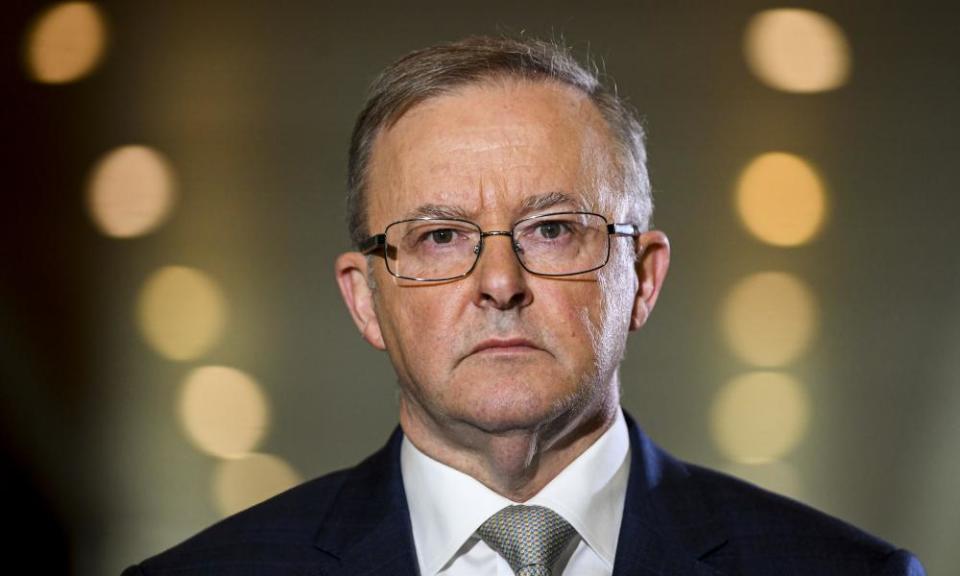Labor agrees to keep Coalition’s stage three tax cuts and dump negative gearing changes

Labor will retain the Morrison government’s stage three tax cuts, which predominately benefit high income earners, and dump proposed changes to negative gearing that were taken to the 2016 and 2019 elections.
The decision was taken by the shadow cabinet on Monday morning, and put to a virtual meeting of the caucus shortly after.
Monday morning’s decision follows weeks of one-on-one consultations between Anthony Albanese and the shadow treasurer, Jim Chalmers, and members of the shadow cabinet.
Originally, senior players worked towards Labor adopting a position of maintaining the Coalition’s tax cut for workers earning below $180,000 while imposing a higher, deficit levy-style tax rate for people earning above that.
But as the consultations played out, the sum of views in the shadow cabinet was that maintaining a higher tax rate for people earning over $180,000 would raise too little revenue for the political backlash it could generate, given stage three is now legislated.
Labor first proposed cutting negative gearing concessions in February 2016. The proposals were rejected by the Turnbull government and became one of the major points of difference between the major parties at the 2016 election.
Labor stuck with the policy for the 2019 election. Changes to franking credits – which were weaponised as a death tax – and the proposed negative gearing overhaul were significant revenue measures that underpinned Labor’s projected increases in social spending in areas like health and education.
Danielle Wood, the chief executive of the economic think tank the Grattan Institute, responded to the news about the negative gearing retreat on social media, saying: “If you can’t sell a popular policy on negative gearing (majority support at the time of the last election), when house prices are rising rapidly and the budget is in massive structural deficit, then what hope does Australia have for any difficult reform?”
When the stage three tax cuts passed the parliament, Labor expressed concern the parliament had locked in tax relief that was unaffordable in budgetary terms. At that time, Labor opposed the third stage because about a third of the $95bn cost would flow to workers earning more than $180,000.
During the parliamentary debate, the opposition tried to force the government to split the legislation, urging the crossbench to support its bid to bring forward the second stage of the tax cuts and defer the third stage that would flatten the tax rate to 30% for all workers earning between $45,000 and $200,000.

 Yahoo Movies
Yahoo Movies 